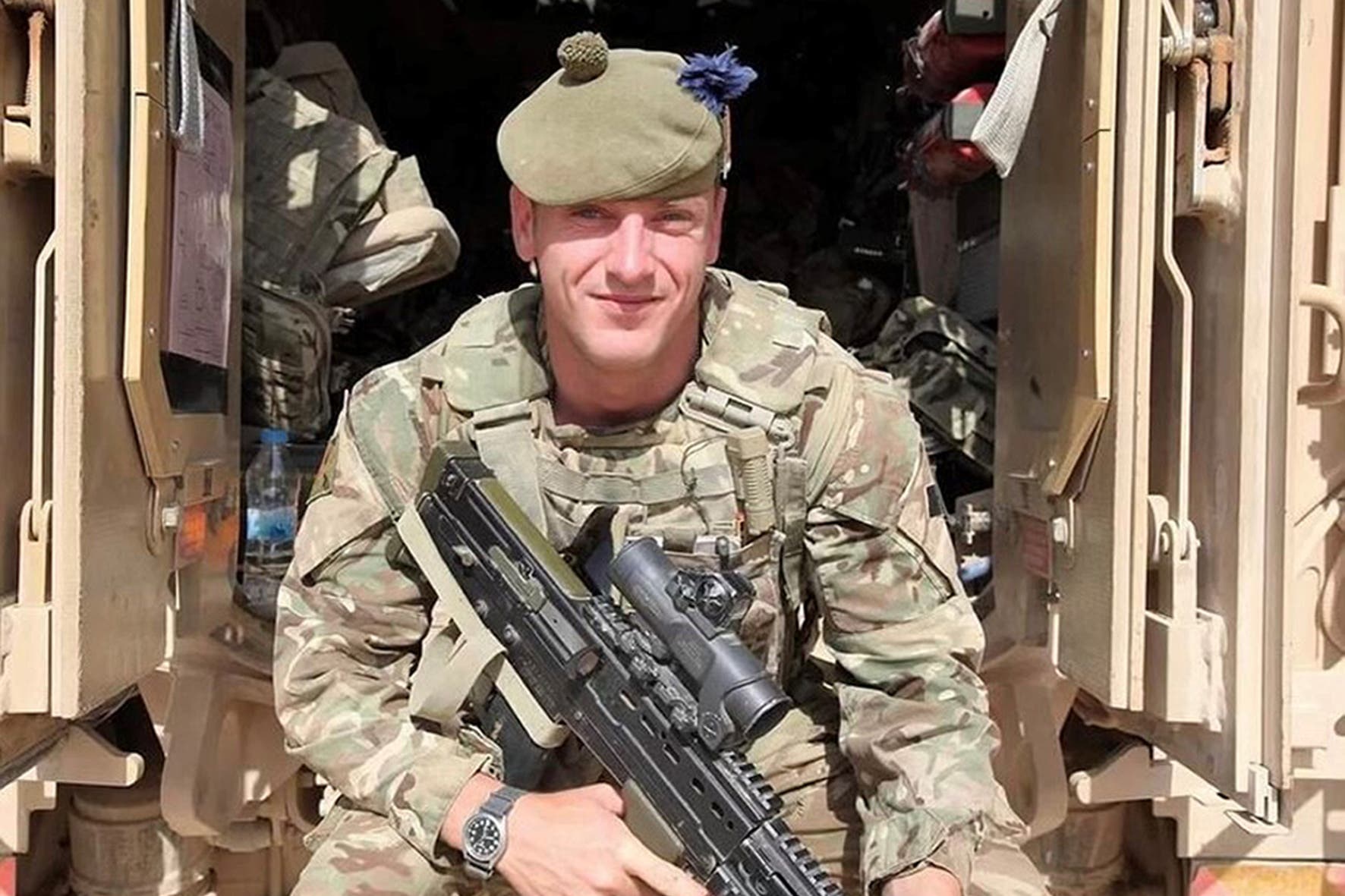Wife of soldier found hanged at barracks says death ‘could have been prevented’
An inquest found there were missed opportunities to support Highlander Nicki Hart but that these did not contribute directly to his death.

The family of a soldier who hanged himself at an Army base said they believe his death “could have been prevented” as an inquest found there were missed opportunities to support him.
Nicholas “Nicki” Hart, 33, who served with the 4th Battalion of the Royal Regiment of Scotland, was found dead at Catterick Garrison, North Yorkshire, in February 2022.
The father-of-three, who was originally from Rhondda Valley, South Wales, had a history of mental health problems and his family expressed concerns about his use of alcohol.
After a two-week inquest in Northallerton, assistant coroner Jonathan Leach said there had been some missed opportunities to support Highlander Hart – including previous suicide attempts not being immediately apparent to people looking at his medical records – but that these did not contribute directly to his death. A conclusion of suicide was recorded.
Following the inquest, Highlander Hart’s widow, Sara, 38, said hearing the evidence had been “been nothing short of traumatic”.
In a statement released via lawyers Irwin Mitchell, Mrs Hart said: “It’s almost impossible to describe how I felt when I was told Nicki had died. There’s not a day goes by when I don’t think about him.
“He had so much to live for and I’ll always struggle to accept that he’s no longer here with me watching our children grow up.
“I’d give anything to bring Nicki back, but I know that can’t happen. While hearing everything at the inquest has been nothing short of traumatic, some missed opportunities have been identified. We as a family remain of the opinion that had he received earlier treatment and help his death could have been prevented.”
Highlander Hart’s sister, Jamie Hart-Dobbs, 39, said: “Nicki was the best brother and I miss him every single day.
“It was bad enough to find out he was having problems with his mental health, but then to hear he had gone completely floored me. I couldn’t take it in and still struggle more than two years on.
“All Sara and I can do now is hope that something is put in place to ensure soldiers get the help and support they need. At the very least, it’ll help us honour Nicki’s memory.”
The inquest heard Highlander Hart had been drinking heavily after the death of his friend, Ryan Mackenzie, at the garrison the previous August.
Former soldier David Twiname told the inquest that alcohol became a “coping mechanism” and Highlander Hart would buy beer and wine from a local store and take it back to his accommodation.
The witness said he made a conscious decision to be with Highlander Hart as he was worried about his friend’s mental health.
Mr Twiname described a diagram his comrade showed him which demonstrated how his aim was to kill himself, but to do that he needed to get around obstacles, which were his friends.
A Service inquiry report has found that there were “missed opportunities” in the care he received before he died.
He developed post traumatic stress disorder after a 2012 tour of Afghanistan, the inquest heard.
He served a second tour of Afghanistan in 2020.
Highlander Hart sent family members a video in the aftermath of a previous attempt to kill himself in October 2021, the coroner was told.
He was referred to mental health specialists and attended an appointment two days before his death.
Bookmark popover
Removed from bookmarks